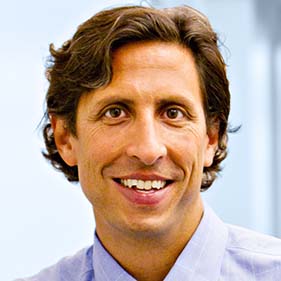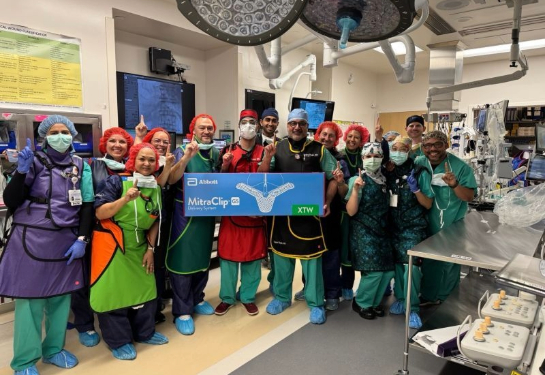Clinical trial for patients with swallowing difficulties after cancer treatment
Promising treatment involves stem cells to improve tongue function
UC Davis Health researchers have begun a new clinical trial that uses stem cells to treat patients with swallowing problems related to tongue injury from cancer treatment.
The trial is called REVIVE. It involves a novel technique where researchers take stem cells from a biopsy of a patient’s thigh muscle and inject these stem cells into the patient’s tongue. Researchers believe the stem cells will fuse with existing muscle fibers to increase tongue strength and patients’ ability to swallow.
“For this study, we are developing a therapeutic approach using autologous muscle-derived cells [AMDCs] to see if there are any benefits to swallowing function for patients with dysphagia,” explained Peter Belafsky, director of the UC Davis Health Center for Voice and Swallowing and the principal investigator of the study. “The initial results of our Phase I trial indicated that AMDCs injected into the tongue of our patients with dysphagia were safe and significantly increased tongue strength.”
Each year, about one in 25 adults will experience a swallowing problem in the United States. Many of these people have received treatment for head and neck cancer, which can damage the muscles responsible for a safe and effective swallow. Currently, there are no effective treatments to improve swallowing.
“This therapy could be a game-changer for our patients who suffer from difficulty swallowing, many of whom are cancer survivors living with the consequences of radiation toxicity,” Belafsky said.
This therapy could be a game-changer for our patients who suffer from difficulty swallowing, many of whom are cancer survivors living with the consequences of radiation toxicity.”—Peter Belafsky
Clinical trial design
The study is a double blind, placebo-controlled clinical trial – meaning neither the participants nor the researchers know who is receiving the stem cell treatment or placebo. However, the placebo patients will be offered the stem cell therapy once they have reached the point in the study where they’ll be unblinded.
For the study, researchers take a biopsy of a patient’s thigh muscle and ship it to Cook Myosite Inc., who developed the cell therapy that isolates the muscle stem cells. This process allows them to extract the AMDCs from the patient’s muscle tissue and expand the cell population to over 300 million cells per patient.
Patients receiving the treatment will have two shots of 150 million AMDCs injected into their tongue, spaced 4-6 weeks apart. When injected, AMDCs can fuse into the muscle fibers of the tongue. It is expected that AMDCs will increase tongue strength and improve patients’ ability to swallow.
Patients given the placebo will be offered the opportunity to receive the stem cell treatment after they are unblinded, two years after the initial treatment.
Search for a treatment
For the study, researchers are working to identify and recruit 62 patients at two clinical sites: UC Davis Health and the University of California, San Francisco.
Participants should:
- Be 18 years of age or older
- Have mild to moderate swallowing difficulty following head and neck cancer treatment
- Be at least 24 months past their last cancer treatment
Travel funds are available for patients who wish to participate at either of the two trial sites, UC Davis Health or UC San Francisco.
Participants also must be committed to completing the study. It involves eight in-office visits and seven virtual visits over the course of 26 months, at either UC Davis Health or UC San Francisco.
The study is funded by a grant from the California Institute for Regenerative Medicine. Additional investigators on the study include Clark Rosen, director of the UC San Francisco Voice and Swallowing Center and chief of the laryngology division.
For more information, contact the study team at HS-ENTStemCell@ucdavis.edu or visit the trial’s website.




